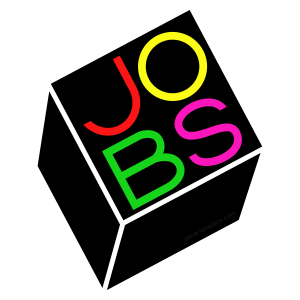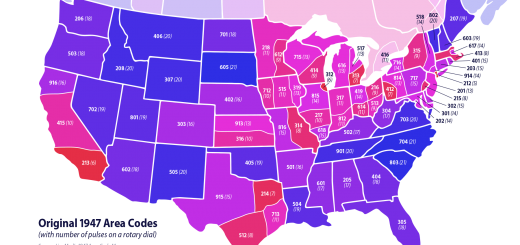Steve Jobs: Time Traveler
 I just finished the book Replay, by Ken Grimwood. It’s the story of a 43-year-old man who dies and awakes in his college dorm room. He then lives his life over again. Only this time, he has knowledge of the future, so he can gamble on long-shot horse races and invest in the stocks of up-and-coming companies. Then at 43 he dies again, going back to college. It turns out that he is a replayer, doomed to repeat his life over and over. This got me to thinking, what if Steve Jobs was a replayer, a man with knowledge of the future?
I just finished the book Replay, by Ken Grimwood. It’s the story of a 43-year-old man who dies and awakes in his college dorm room. He then lives his life over again. Only this time, he has knowledge of the future, so he can gamble on long-shot horse races and invest in the stocks of up-and-coming companies. Then at 43 he dies again, going back to college. It turns out that he is a replayer, doomed to repeat his life over and over. This got me to thinking, what if Steve Jobs was a replayer, a man with knowledge of the future?
Imagine for a moment a man stuck in a time loop, going from 1955 to 2011. Imagine that he went through this loop only-God-knows-how-many times. Just think about how many technological phenomena he would have observed: phone phreaking, hobbyist computers, PCs, graphical user interfaces, computer animation, MP3 downloading, smart phones and tablets.
If Jobs had known about these technologies, he would have also known about the many geniuses behind them: Steve Wozniak, Andy Hertzfeld, Susan Kare, Jean-Louis Gassée, John Lasseter and Jony Ive just to name a few. These are just some of the people who have made the world we live in today. All of them worked with Jobs, and all of them had their creativity pushed to the extreme by Jobs’ unflinching vision of the future. And this list doesn’t even include the people who were influenced indirectly, such as Microsoft creating Windows, Google creating the Android OS and Tim Berners-Lee creating the World Wide Web. Jobs’ influence over the 21st century is so profound that it’s impossible to imagine a world in which he did not exist.
Of course, I don’t want to overestimate Steve Jobs’ influence. Remember that he did not create all the amazing things that Apple, NeXT and Pixar pioneered. He simply used his charisma and influence to keep people on track. In a world without Jobs (or the Jobs that we knew), Woz still would have designed a computer. And it would have been an amazing machine, well known in the hobbyist community at the very least. Likewise, the Xerox PARC researchers would have invented the graphical user interface, and if they hadn’t marketed it, perhaps Bill Gates would have. John Lasseter would have created great cartoons in any era, with or without Jobs’ influence in Pixar.
All of these things would have happened without Jobs. But I have to wonder if things would have taken a lot longer to catch on. The hobbyist movement would have been slower to catch on. Xerox would have sat on its mouse-and-window-driven computers, not realizing what they had. We’d still be using phones with keyboards and using tablets with styluses. It took one man with a knowledge of the future and an eye for talent, to bring everything together.
In the end, Replay is a novel, though a damn good one. And Steve Jobs was a mere mortal, just like the rest of us. While it’s fun to think about, it’s an insult to the man’s legacy to say that he knew the future before it happened. He didn’t know the future; he was just very good at recognizing potential, in both technologies and in people.








This reminds me of a few stories you might like, Mr. Lovelace (see below).
When I first saw Back to the Future, I indulged in a fanstasy in which I was displaced to 1955 (as was Marty McFly). I sat down and made list of everything I could remember about history – NBA champs, World Series winners, NFL champs, etc. Tried to remember up and coming Fortune 500 companies. Then imagined I’d move to Vegas, make a quick, comfortable stack, make some friends through whom I would place bets, hire a stock broker and place more bets. Blah Blah Blah.
My all time favorite time travel short is:
Try and Change the Past
Fritz Lieber
Astounding Science Fiction, March 1958
The premise is that a man is plucked from his native timeline – recruited to fight a “time war”. He tries to change the circumstances of his death but finds that the universe wants him (his doppleganger) dead – and kills him each time he tries to prevent his own death.
view here:
http://storyoftheweek.loa.org/2012/07/try-and-change-past.html
or download this:
http://www.loa.org/images/pdf/Leiber_Change_Past.pdf
(I considered pasting the whole story in the comment – but that would be uncouth)
Another short, which sounds like “Replay” is about a man who is driven to create technology. He lives about 80 years (from ca. 1750-1830) and discovers a way to go back in time. He does so and meets his younger doppleganger – gives clues about tecnology – and dies. The doppleganger, with an additional 60 years experience furthers the tech art yet further – produces the same time machine and restarts the cycle.
Damned if can remember the title or author, even after reviewing the tables of content, but I think it’s in this collection:
The Best Time Travel Stories of the 20th Century (Henry Turtledove editor)
http://www.amazon.com/Best-Time-Travel-Stories-Century/dp/0345460944/ref=sr_1_1?s=books&ie=UTF8&qid=1373650286&sr=1-1&keywords=greatest+time+travel+stories#reader_0345460944
or this one:
The Best Alternate History Stories of the 20th Century
http://www.amazon.com/Best-Alternate-History-Stories-Century/dp/0345439902/ref=sr_1_1?s=books&ie=UTF8&qid=1373651977&sr=1-1&keywords=Best+alt+history+Stories
The time travel collection contains a short with a very satisfying ironic twist – Kuttner’s Time Locker. By my lights this one story alone justifies a used purchase.
BTW, I have a copy of Replay coming – thanks for the notice.